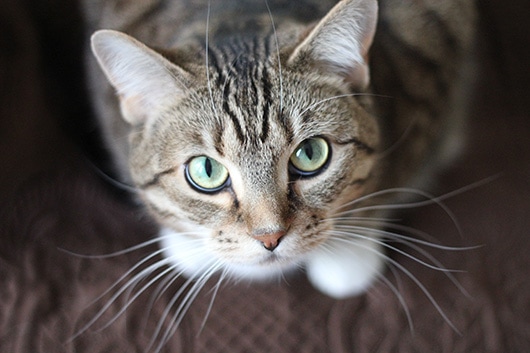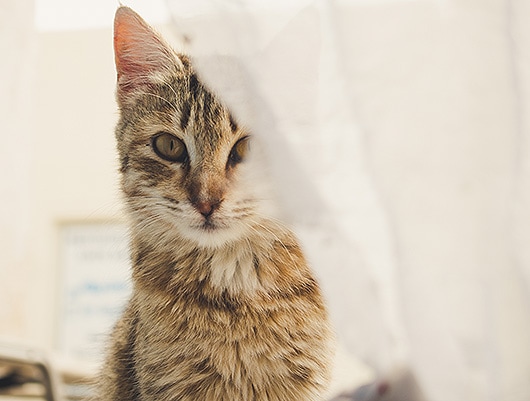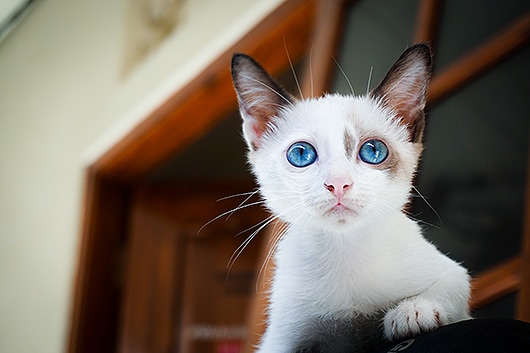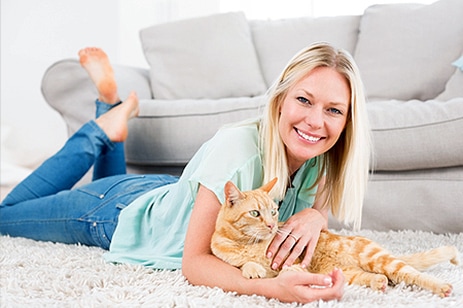So how do you know if your cat is stressed versus just being naturally feisty? Well, the signs are subtle. Oftentimes, it’s a subtle change in behavior that doesn’t even seem to be related to anxiety. Some of the more common changes include …
- Urinating or defecating outside the litter box
- Isolating themselves from others in the household
- Excessive grooming
- Prolonged periods of sleep
- Excessive vocalization beyond what is typical (remember, some kitties are naturally more talkative than others)
- Increased scratching
- Aggression
First, try to pinpoint the source of the stress and eliminate it, if possible. We tend to view these issues through our human lens, so it’s important to remember that unexpected things can be at the root of your cat’s stress. Some of the more obvious reasons include changes in living conditions – from divorce, moves, a new companion animal in the house, or new babies – to the most obvious physical cause, which is pain. But little changes can also provoke anxiety: new furniture, a neighbor’s dog barking, a dirty litter box, being denied access to their favorite location, a neighborhood tomcat taunting them from the yard, even music they don’t like! As you can see, it’s a long list.
Environmental modifications can make a big difference. For indoor cats, boredom can be a near-constant stressor, so provide lots of vertical space for exploration (they love being elevated). Home-built or store-bought cat trees are a great solution. Puzzle feeders can be a good source of environmental enrichment, as they appeal to their hunting instinct. Pheromone diffusers or sprays can also have a calming effect for some.
Try to set aside some one-on-one time for your cat in the space where she is most relaxed. Optimally, this is something you’ll do every day at the same time, because cats are true creatures of habit. No distractions, which means leave your phone in another room and turn off the TV. Brush, pet, sing … do whatever pleases your cat the most. It’ll be good for both of you!
A happy cat means a happy you! If you think your cat is suffering from stress or anxiety, try some of these suggestions to help them live the “purr-fect” life.
Thank you for all you do to make the world a better place for companion animals,






























 RSS Feed
RSS Feed




